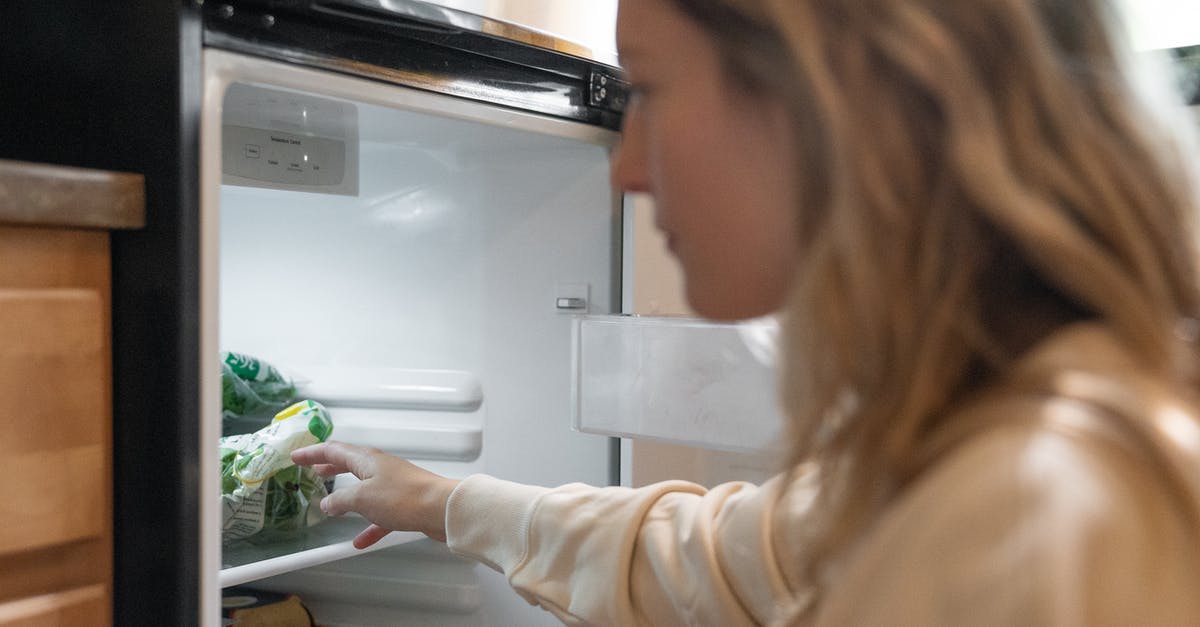Is unnecessary refrigeration problematic?

Our local grocery store's produce section has a few areas of refrigerated produce along the walls--mostly "wet" vegetables like lettuce, squash, peppers, green beans, etc. The rest, in the middle of the produce section is simply on shelves in bins, like potatoes, onions, corn and bananas.
For the most part, our home storage tends to follow the store's--we keep lettuce in the crisper and onions out.
However, there are a few pieces of produce that tend to generate some controversy in our house, and they tend to be small and round, like grapes, cherries, and berries. The questionable item this week is blueberries. My tendency is to follow the store's practice of leaving this out, whereas my wife seems convinced they will rot in a matter of hours and insists they should be refrigerated.
I'm more or less satisfied with refrigerating them--as long as it won't cause a problem. I've heard that some items will actually go soft faster, or lose flavor, if stored cold.
Best Answer
Living organisms, including plants, are very complicated miniature chemistry factories. Even separated, dead body parts still have chemical processes taking place completely independent from any parasitic organisms (bacteria, molds) present. But of course, lots of the processes which take place in the living plant don't take place any longer, and their absence can change the food considerably (rigor mortis in animals, wilting in plants).
Refrigeration slows down the growth of bacteria and molds, and some of the processes going on internally in the plants. There are two problems with that: 1) sometimes, you want these processes to go on. A pear will continue to ripen and enhance its aroma after plucking, especially if there are catalysts like ethylene present. If refrigerated, this ripening will be limited severely. 2) Some of the chemicals already present in plants will change under low temperatures. ESultanik pointed out two such examples, the self-destroying aromatic compound in tomatoes, and the starch-sugar conversion in potatoes. These and similar changes happen in other fruit and vegetables too. But it doesn't mean that all fruit and veggies undergo undesirable changes.
There is a good rule of thumb to predict where such changes may occur. It says that the bigger the temperature difference between the plant's living conditions and storage conditions, the more likely it is for its chemicals to behave strangely. So everything which thrives north of the Alps should do well in the fridge (if the fridge has a crisper, use it). Everything else must stay outside (including tomatoes - you can grow them in Middle Europe, but they don't taste well). Shape, color, etc. is quite irrelevant to storage temperature. If you have logistic difficulties, just use small breathable containers for placing berries etc. into the fridge, instead of the squishable plastic bags you may have bought them in.
The rule isn't perfect, but to do better than that, you'd have to research the optimal storage conditions for every single fruit or vegetable and possibly furnish a cold storage cabinet or pantry in the 10°C - 15°C range.
Pictures about "Is unnecessary refrigeration problematic?"



Why is there a necessity of refrigeration?
Refrigeration slows bacterial growth. Bacteria exist everywhere in nature. They are in the soil, air, water, and the foods we eat. When they have nutrients (food), moisture, and favorable temperatures, they grow rapidly, increasing in numbers to the point where some types of bacteria can cause illness.What are some negative impacts of the refrigerator?
These refrigerants break down ozone molecules far less, but are extremely potent greenhouse gases. Their capacity to warm the atmosphere \u2013 measured as global warming potential \u2013 is thousands of times greater than carbon dioxide, with some being up to 13,850 times more potent.What is the impact of refrigeration in the society?
Refrigeration brought distant production centers and the North American population together. It tore down the barriers of climates and seasons. And while it helped to rev up industrial processes, it became an industry itself.How are refrigerators bad for the environment?
Did you know that the refrigerants contained in air-conditioners and refrigerators can be extremely harmful to the environment? Many refrigerants, such as chlorofluorocarbons (CFCs) damage the ozone layer, while others are extremely potent greenhouse gases.Breaking Bad ATM Scene
More answers regarding is unnecessary refrigeration problematic?
Answer 2
As Doug mentioned in his answer, tomatoes lose flavor if refrigerated. This is because they contain an aromatic compound called cis-3-hexenal which is permanently destroyed if the tomatoes drop below about 50°F. Moisture makes onions rot, and refrigerators are moist places, so onions should generally be stored in a dry place when whole and refrigerated in an airtight container after they are cut. For the same reason, you shouldn't keep your onions close to your potatoes, since potatoes give off moisture. Speaking of potatoes, their storage depends on what you want to do with them. For most recipes, you should store the potatoes at just above refrigerator temperatures. If the potatoes get too cold, this promotes their starch to convert into sugar, which can cause the potatoes to taste weirdly sweet and/or cause premature browning. This is sometimes a desirable thing, though. For example, if one is making a potato recipe that would otherwise be difficult to brown/crisp well (e.g., oven baked lowfat french fries), one might benefit from pre-chilling the potatoes. As for blueberries, I always refrigerate them and have never had a problem (but they hardly ever last more than a day or two at my house). Just don't pre-wash them, because any moisture on their surface will promote mold/decomposition. In fact, the only berries that I don't refrigerate are tomatoes (at least that I can think of).
Answer 3
Just to clarify a couple of things that others have said -
The skin of any vegetable or fruit has natural defences against microorganisms, particularly moulds - if you wash your food the minute you get it home, you reduce its keeping qualities. Wash things as needed, immediately before using or eating them, and they will keep longer than if you wash them in bulk.
Never neglect the washing, because they may have been sprayed with something to improve their shelf life - and remember this includes things like the peel of citrus fruits, which is often ignored by the pros.
It is a fact that chilling foods can initiate mould growth, which will manifest itself quite quickly if the temperature is raised. If food was chilled when you bought it, keep it that way and the mould growth will be slowed down. If you put it in the chiller, keep it there until you use it.
If you bought food at room temperature and it quickly goes mouldy, you can usually bet that it was chilled in transit.
Answer 4
I have always been led to believe that tomatoes, at least, will lose their sweetness if refrigerated.
Sources: Stack Exchange - This article follows the attribution requirements of Stack Exchange and is licensed under CC BY-SA 3.0.
Images: 장형길, Ron Lach, Kevin Malik, Brett Sayles
